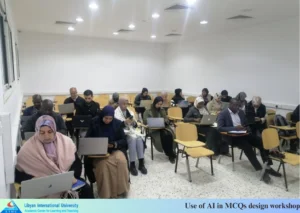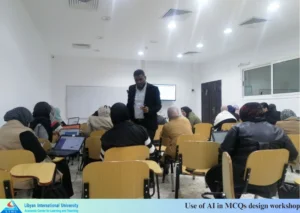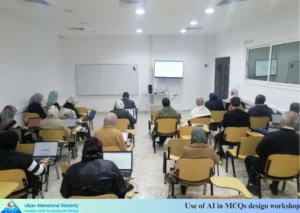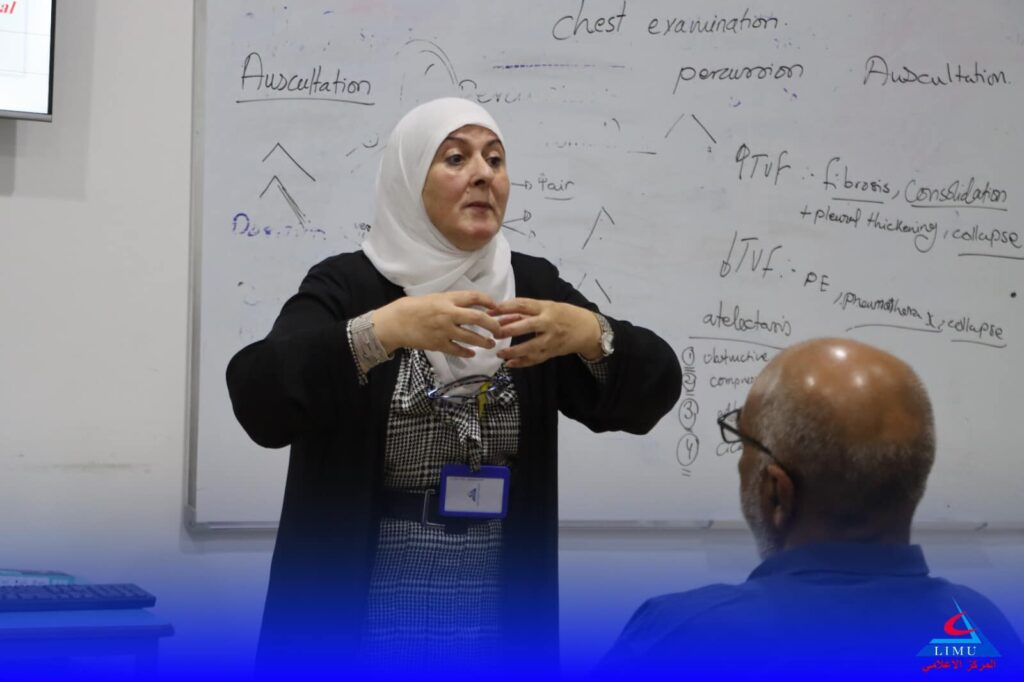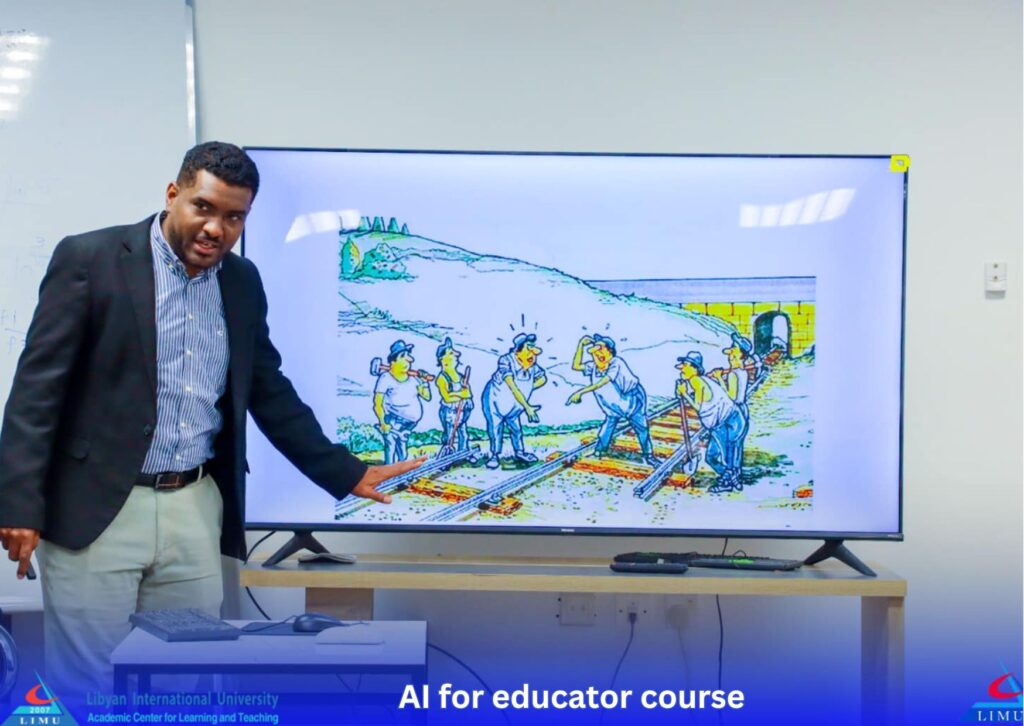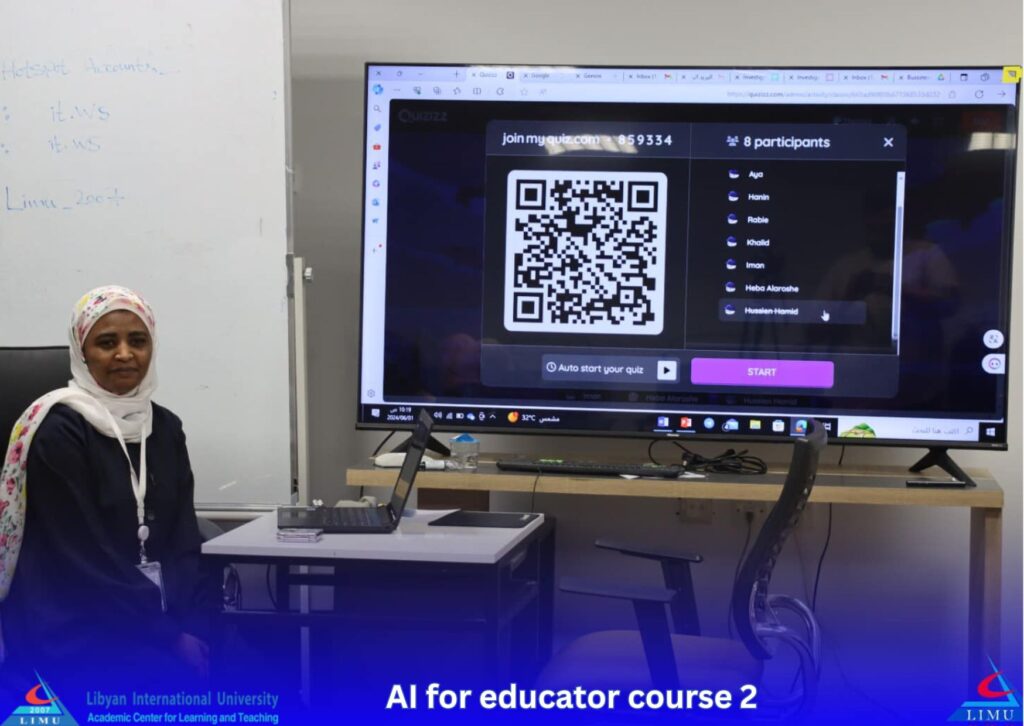The Academic Center for Learning and Teaching (ACLT) at the Libyan International University (LIMU) organized a workshop on the “Use of AI Tools to Construct High-Quality MCQs” for faculty members of Libyan international university on December 21, 2024.
The workshop aimed to empower faculty members with cutting-edge strategies for designing multiple-choice questions (MCQs) by leveraging artificial intelligence tools. The comprehensive session covered the following objectives:
- Principles of Effective MCQ Design: Participants explored the components of high-quality MCQs, including well-constructed stems, plausible distractors, and alignment with learning objectives.
- Comparison of AI Tools for MCQ Construction: The workshop introduced various AI-based tools, such as ChatGPT, Questgen, and ProProfs, evaluating their features and suitability for different assessment needs.
- Utilization of AI Tools to Generate MCQs: Attendees demonstrated how to use AI tools to create questions tailored to specific topics, difficulty levels, and cognitive domains.
- Refinement of AI-Generated MCQs: The session focused on analyzing and modifying AI-generated questions to enhance clarity, validity, and alignment with assessment blueprints.
- Integration of AI-Generated MCQs into Assessments: Faculty members learned to develop and incorporate AI-generated MCQs into quizzes, exams, and formative assessments.
- Best Practices for Technology-Enhanced Assessment: Participants were guided on the ethical and effective use of AI tools to maintain the reliability and educational value of assessments.
- Reflection on AI in Education: The workshop concluded with a discussion on the benefits and limitations of AI in assessment design and its role in modern education.
The event highlighted the transformative potential of AI in academic assessment and equipped faculty members with practical skills to enhance their teaching and evaluation practices.
